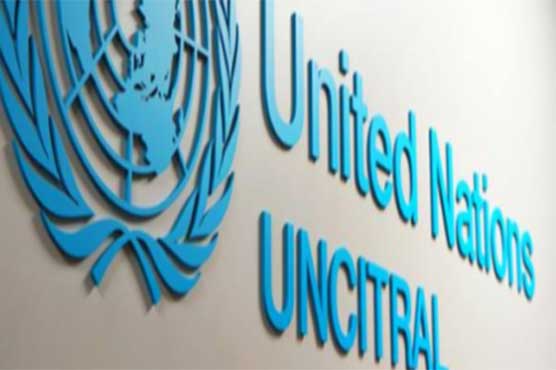There is a growing use of mediation in international commercial disputes. Many have pointed out that mediation is ‘the new arbitration’, because arbitration has become increasingly formalized, costly, lengthy and adversarial in nature. Others argue that mediation cannot take the role of arbitration, and one of the reasons is that it lacks an international system for enforcement of mediated agreements like that of arbitration awards in the New York Convention of 1958. This has spurred ideas on creating such a system to further promote mediation as a way to solve international commercial disputes. Following a proposal by the US in July 2014, United Nations Commission on International Trade Law (UNCITRAL) is currently investigating the possibility, desirability and best design of an instrument, such as an international convention, on the cross-border enforcement of international mediated agreements (referred to by UNCITRAL as settlement agreements resulting from conciliation), similar to the New York Convention for arbitration.
In international business, the main ways to settle disputes are adjudicative, namely through arbitration and domestic court litigation. Mediation has many advantages compared to those methods. By being an informal and private form of dispute settlement, it takes significantly less times and involves considerably less costs than arbitration and litigation. It also has the potential of producing savings in domestic administration of justice if some in-court litigation is avoided. In contrast to arbitration, the parties have control over both the decision to settle and the terms of any settlement, which in turn enables creative solutions where business considerations and common interests can play a key role. Finally, mediation helps preserve ongoing commercial relationships, which can be especially important in joint ventures or long-term supply contracts; by comparison, an adjudicative process is per se disruptive. However, many of these benefits of mediation in international commercial disputes are dependent on the finality of the mediated agreement, i.e. that parties are bound to comply and unable to bring the dispute anew. The possibility of cross-border recognition and enforcement of mediated agreements is therefore vital in promoting meditation, facilitating international business and mitigating social costs.
Currently, countries have various ways to enforce international mediated agreements. Some provide for enforcement of mediated agreements as court judgments. However, that is often limited to court-sponsored mediation or cases first filed in court, and enforcing such court judgments across borders is often difficult. Other countries allow arbitral tribunals to convert mediated agreements into awards on agreed terms, also referred to as ‘consent awards’, thus enabling the agreements to be enforced as arbitral awards. However, as with court judgments, this often requires that the disputes started as arbitration cases. In many other countries mediated agreements are treated as ordinary contracts, which means that a party must file a normal suit claiming breach of contract in order to obtain enforcement. This entails normal burden of proof rules and no res judicata effect from the mediated agreement.
On the international level, UNCITRAL has previously attempted to enhance the use of mediation and other conciliation methods through its Model Law on International Commercial Conciliation of 2002. However, the Model Law leaves the matter of enforceability to the individual state. It has therefore been widely criticized for doing no more than merely restating the obvious. The New York Convention potentially allows arbitral tribunals to convert mediated agreements into consent awards. However, since the Convention only governs arbitrations arising out of “differences,” it is unclear whether it can be used for differences that did not exist at the start of an arbitration process; with a prior mediated agreement there are arguably no differences to be arbitrated. Parties wishing to use mediation to settle there disputes are therefore presently advised to include an arbitration clause, or a hybrid clause such as Arb-Med, in their contract and to convene an arbitral tribunal before commencing mediation, in order to ensure enforcement under the New York Convention. Even so, this creates unnecessary costs and delays for convening arbitrators and attorneys etc. In addition, most arbitration rules allows consent awards only if the arbitrators themselves agree to it and it is not certain that arbitrators would agree to merely rubber-stamp mediated agreements.
It is therefore clear that there is a need for a new international instrument that ensures enforceability of international mediated agreements, and the current proposal discussed within UNCITRAL should be encouraged and accelerated. As to how such an instrument should be designed there are some key issues to agree on, for example the form of the instrument, coverage of non-commercial disputes, conditions for the mediation process and the mediator, enforceability also of agreements to mediate, enforcement of non-monetary or otherwise complex agreements, and grounds for refusal of enforcement.
The existing political momentum should be utilized. Having the US, the major player in international business, as its number one proponent makes the convention more likely to be accepted by a critical number of countries. In addition, in a recent survey of members of the international legal and business communities the vast majority of the respondents believe that a convention on the enforcement of mediated agreements would be very useful for international business. Their views are valuable in convincing countries of the merits of a new international instrument. The fact that there are many different domestic systems for enforcing mediated agreements could make agreement on a new convention more difficult, however, the situation was similar for arbitration when the New York Convention was agreed upon, and, presently, rules on enforcement of mediated agreements is at a developing stage in many countries. Moreover, if based on the structure of the New York Convention, the new convention would already be familiar to countries, making it easier to reach agreement.
The relevant Working Group of UNCITRAL will meet in Vienna, 12-23 September 2016, and hopefully an ambitious timeline for the preparation of a convention will be agreed upon.


